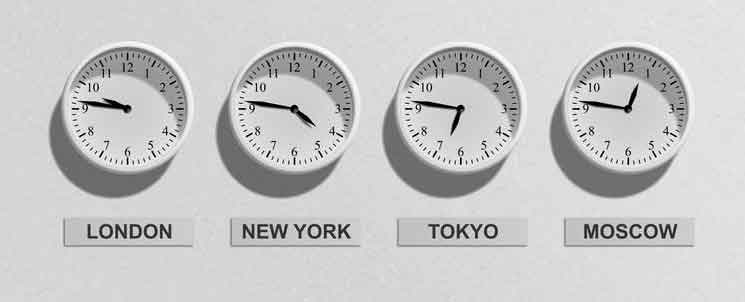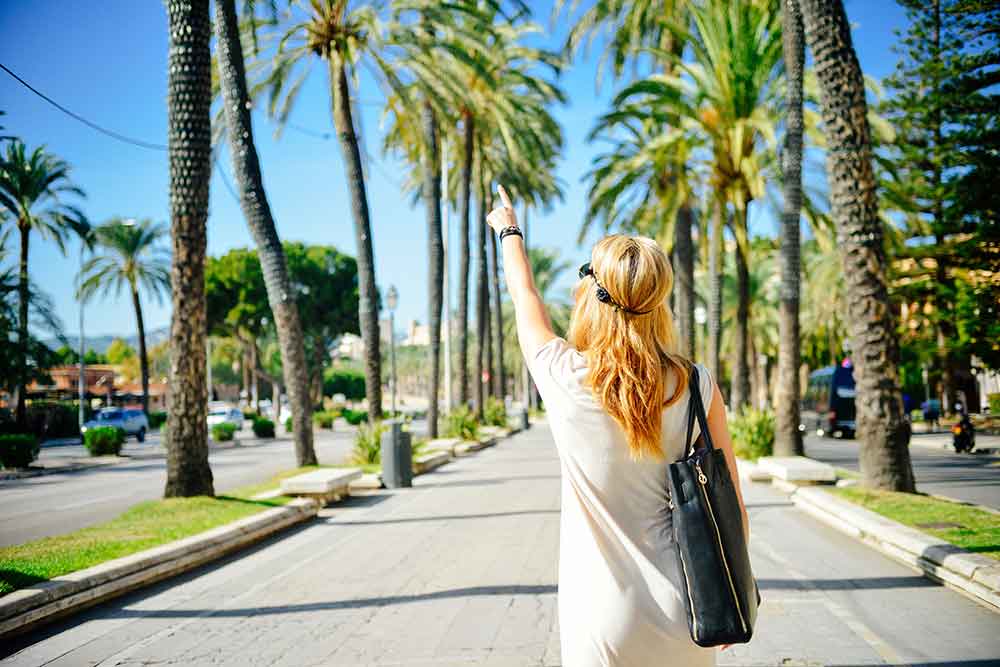10 tips to overcome jet lag

Are you planning a trip that will involve travel across several time zones? If so, you may find yourself experiencing jet lag.

Jet lag is defined as a temporary condition that is experienced when one travels across several time zones.
Jet lag isnʼt permanent, but its temporary effects can cause fatigue, insomnia, dehydration, headache, irritability, coordination problems, and a number of other symptoms, including a change in bowel habits, causing constipation or diarrhea.
Traveling west across time zones is supposedly easier to manage than traveling east, but both directions of travel can cause an upset in our body clock, so take a look at these 10 easy tips to combat jet lag:

1. Water – Drink a lot of it! Staying hydrated is a key ingredient to eliminating jet lag. Also, drinking more water will mean you need to get up to visit the restroom often. This can reduce your risk of deep vein thrombosis, which can occur when blood pools in the legs from inactivity.

2. Caffeine and alcohol – Avoid them, say jet lag researchers! Both substances can accelerate dehydration and play havoc with your internal body clock. The caffeine can keep you awake while the alcohol can make you sleepy, making symptoms of jet lag even worse.

3. Try taking Melatonin – Taking a 3 mg capsule of this over-the-counter medication at bedtime if youʼre traveling west, or, if traveling east, between 6:00 and 7:00 p.m. on the day of your flight, followed by another at bedtime, can help you sleep naturally. Not as strong as a sleeping pill, melatonin is a natural amino acid secreted by the pineal gland when it is dark.

4. Let there be light – During daylight hours, get out and about in the sunshine so youʼll inhibit your bodyʼs natural melatonin production.

5. Do a little carb loading – Some scientific research shows eating a carbohydrate rich meal the evening before your flight can help you sleep. Carbs do provide a source of tryptophan, which can then be converted to serotonin, a sleep-inducer.

6. Silence and cool darkness – Using earplugs to block out noise, eyeshades to block out light, and lowering the temperature in the room can all contribute to getting the sleep you need. When your bodyʼs core temperature is lowered, it signals your body to sleep.

7. Choose a protein-rich breakfast – Selecting foods high in protein for the morning meal the day after you arrive can help your brain receive what it needs to keep you alert throughout the day.

8. Medication management – If you have a medical condition that requires taking prescription medications, check with your doctor to plan a coping strategy, re: when to take medications or adjust medication times to the new time zones you will be on during your trip.

9. Adapt in advance – Especially if you have had difficulty with jet lag previously, you may want to start adapting to the destination time zone in advance. Starting your daily routine one or more hours before or after your normal schedule for a week or two before departure.

10. Donʼt give in – You have traveled a great distance to enjoy your new surroundings, so donʼt give in to going back to your room to nap, or getting up in the middle of the night to snack. Youʼll be sabotaging yourself and your trip. Get on the new schedule immediately, follow the tips above, and you should find yourself adjusting fairly well within 1 1/2 to 2 days.


Yep. I have tried all of these except the protein breakfast. I didn’t know about that one. Living in Australia jet-lag is a brutal necessity whenever we travel internationally. East is definitely worse than west. I find it takes about a week to fully recover from a flight from Sydney to Europe – a little less from a flight from Sydney to the USA, because it is closer.
You definitely have a long way to go, which makes sense it would take longer to recover. It’s all worth it, though, right?
I’ve given up on beating jet-lag and consider it a necessary evil of the lifestyle I’ve chosen. I am turned around for a week on either end of our trips between the Pacific Northwest and Greece. I do appreciate the great information you’ve gathered here though and hope it helps some. (I am real hesitant to drink lots of water on a flight as usually about the time it works its way through me the seat belt sign comes on as we’ve hit turbulence. 😉 which adds to the pressure building in my bladder.)
I can relate to what you say about having trouble getting up to the restroom when you need to, due to the seat belt sign being on, or the flight attendants are coming through with the carts, but we have to keep trying! That’s when it’s nice to have an aisle seat. You don’t have to ask someone to get up so you can go!
How about exercise at your destination? I see many articles promoting that.
That’s a key point, Charles! It’s so important to not give in to napping but get out and about at your new destination.
I now seem to get jetlag when travelling north-south and not east west! It’s all so confusing! I have found that no alcohol on the flight does help and taking lots of Netflix movies. At least if you feel bad you’re distracted! I’ll try the protein breakfast too
That IS a bit different to get jet lag when traveling north-south but everyone’s system reacts differently!
The only time I’m thankful for my normally messed up circadian rhythm is when we travel across time zones. I’m much less affected than my husband is because he has a strong circadian rhythm which is a good thing most of the time, but it really does take him a day per time zone crossed to get back to his normal sleeping pattern. I dont have a normal sleeping pattern to begin with.
Good ideas, all. My tried and true preventative cure is No Jet Lag tablets.
Interesting, Carole… Thanks for the suggestion! I had not heard of this but looked it up and see that it contains five homeopathic remedies. The active ingredients are Arnica Montana 30C (Leopard’s Bane), Bellis Perennis 30C (Daisy), Chamomilla 30C (Wild Chamomile), Ipecacuanha 30C (Ipecac), Lycopodium 30C (Clubmoss). For those who may be interested, here is a link to more info about it: http://www.nojetlag.com/product-specifications-of-No-Jet-Lag.html
I love having all these suggestions for overcoming jet lag in one easy-to-read place. I’ve tried some of them but never melatonin. I think I’m a little fearful of that, but I don’t know why. Yoga stretches do help me.
No need to be afraid of taking Melatonin, Pam. It’s all homeopathic and very safe. Give it a try! After being seated in a plane for hours, I can see that yoga stretches would be very helpful. Thanks for the tip!
Such a talked about subject that’s for sure. I’m a big fan of melatonin too. I’ve recently discovered a CBD (no THC) that has melatonin that works like a charm when I have a hard time getting to sleep.
Good to know, Sue! Sleep is such an important restorative component to enjoying our travels!
This was an amazingly useful blog for me, I am about to travel US and I am from India these tips of yours are gonna help me. Thanks for the share, Keep up the good work. Cheers!!!
Thanks for the comment, Rishi! I’m glad you found this post helpful!